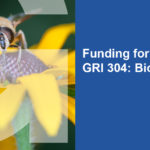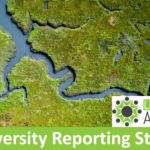
As the global community marked International Biodiversity Day (22 June), we also faced the sobering fact that human impact on the planet has entered a stage that is fast approaching a point of no return. For earth’s living ecosystems, the effect is already being keenly felt at its devastating worst.
By now we all understand the real and present danger of climate change and why urgent action is needed to pull us back from the precipice. Yet – inexplicably, given the mounting evidence from all parts of the world – the major threat to biodiversity has not been given equal billing.
In this context, the global assessment announced this month by the Intergovernmental Science-Policy Platform on Biodiversity and Ecosystem Services (IPBES), contributed to by 130 countries, is both timely and urgent. And it makes for challenging reading.
As the IPBES report sets out, the global impact of human activity has had its most rapid and destructive effect on biodiversity in just the past 50 years, leading to widespread loss of habitats, damage to ecosystems, and even species extinction.
Fundamentally, biological integrity and diversity is the safety net that provides us with the resources we need to live and thrive on this planet. Yet it is our approach to meeting human demand for food, water and natural resources that is leading to the decimation of these very resources.
The problem is that our short-term focus means we have lost our connection and relationship with the natural environment. We cut down pristine forests that perform essential functions like storing carbon in order to support beef production. We take fish out of the ocean at unsustainable rates that can collapse intricate food chains.
What all this point towards is a looming biodiversity catastrophe – and an urgent need for us to do much, much more to reassess and understand how we are approaching and using the finite global resources available, and what the impact on biodiversity is of that exploitation.
Corporate reporting on sustainability impacts – by businesses, organizations and governments around the world – is part of the solution. Robust data, and the accountability that comes with it, gives individual companies the insights needed to take action that helps contribute towards solutions.
The GRI Biodiversity Standard recognizes that the survival of plant and animal species, genetic diversity and natural ecosystems contributes to our wellbeing and directly impacts efforts to address poverty and advance sustainable development.
So, through sustainability reporting, organizations can better understand and communicate their impacts, engage stakeholders and make choices and changes that safeguard biodiversity on a local, regional and global scale, as well as optimize their own performance. Greater transparency on this critical issue will also play a key part in informing global dialogue to find and implement workable solutions.
Ultimately though, actions speak louder than words. The warning of accelerating extinction from IPBES must be a rallying call to the international community. We need to tip the balance back in both earth’s and humanity’s favor, before it’s too late. Time is running out.
By Tim Mohin, Chief Executive of Global Reporting Initiative



